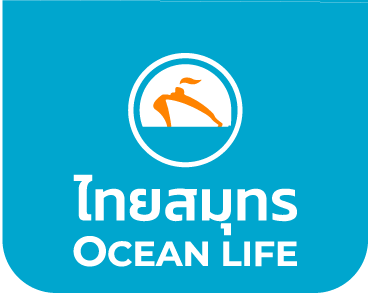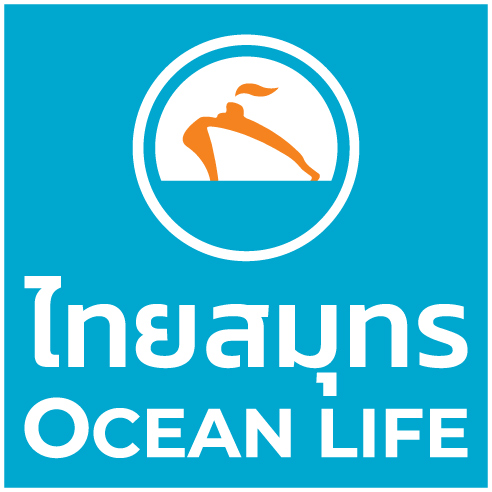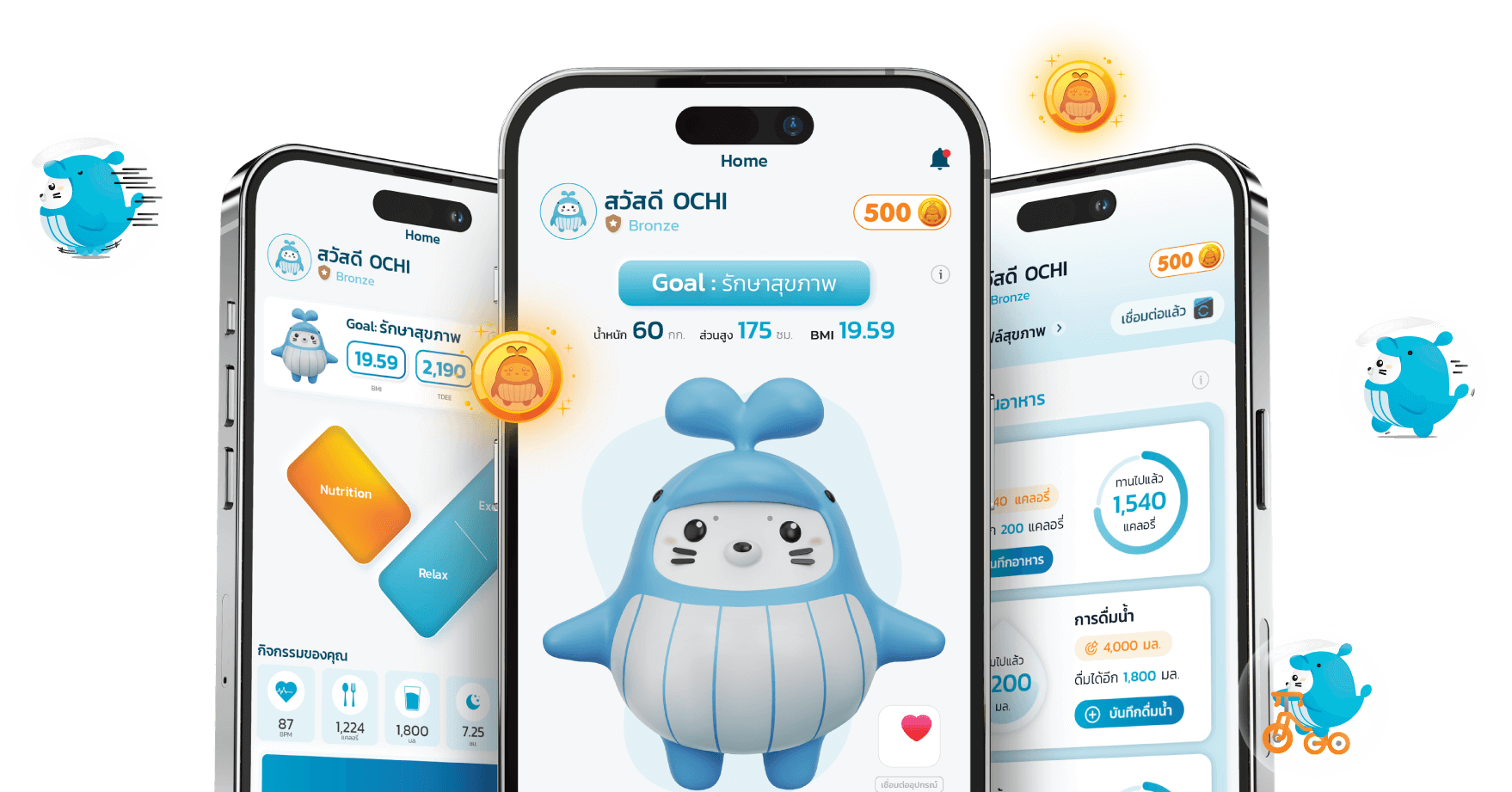Due to the environment, social conditions, and way of life in Thailand at present, more than a million Thai people have a higher chance of developing chronic diseases that require both financial and time investments for treatment. This article will present the five most prevalent diseases among Thai people, based on data as of June 14, 2023. Let's take a look at what these diseases are and the various risk factors that contribute to their occurrence, so that everyone can avoid and prevent these diseases.
1. Obesity
Number of Thai people with obesity: 2,257,671
Individuals with obesity are defined as those who weigh more than 100 kilograms or have a BMI (Body Mass Index) of 25 or higher. You can calculate your BMI using the following formula.
Weight in kilograms / (Height in meters)²
For example, Miss A weighs 86 kilograms and has a height of 156 centimeters, resulting in a BMI of 35.34, which is higher than 25. Therefore, Miss A is considered obese.
Obesity is caused by consistently consuming high-energy foods that exceed the body's needs and not following proper nutrition guidelines. This particularly applies to individuals who have a preference for sugary foods, including alcoholic beverages such as wine and beer, which are quickly absorbed by the body. This leads to a high release of insulin, contributing to obesity. Additionally, genetics, conditions such as hypothyroidism, smoking, and certain medications like contraceptives and antidepressants can also contribute to weight gain.
Furthermore, women are more prone to obesity compared to men, as men generally have more muscle mass, which burns energy more efficiently. Therefore, men, on average, find it more challenging to become obese due to their higher energy expenditure.
2. Diabetes
Number of Thai people with diabetes: 1,181,575
Diabetes is caused by the dysfunction of the insulin hormone, which is produced by the pancreas. This leads to higher-than-normal blood sugar levels. Diabetes is categorized into four types based on the causes of the disease, and you can find more details in the article "6 Common Diseases Found in the Elderly" which is frequently found in the elderly population.
Once diagnosed with diabetes, it is essential to receive ongoing treatment and maintain target blood sugar levels to minimize the risk of long-term complications.
3. Kidney disease
Number of Thai people with kidney disease: 1,098,942
Kidney disease can result from various conditions that affect the kidneys, such as diabetes, high blood pressure, gout, and kidney stones, among others. Misuse or excessive use of medications can also impair kidney function. Additionally, daily lifestyle behaviors can increase the risk of kidney disease, such as consuming a high-sodium or highly seasoned diet, inadequate hydration, experiencing stress, and lack of regular physical activity.
Once diagnosed with kidney disease, it is important to undergo continuous treatment. Blood pressure should be controlled to be below 130/80 mmHg, and blood sugar levels should be kept below 7%. Dietary management should focus on protein intake and reducing salt consumption. Avoiding the use of non-prescribed medications or certain drug combinations without consulting a physician is advised. Regular exercise should also be incorporated into the routine.
4. Severe chronic respiratory disease
Number of Thai people with severe chronic respiratory disease: 730,517
Severe chronic respiratory diseases include conditions such as chronic obstructive pulmonary disease (COPD) and asthma. COPD, often referred to as "emphysema," occurs when we inhale toxic substances, which can be in the form of gases or particles, such as cigarette smoke, pollutants, and chemicals released from burning fuels. These substances lead to irritation, inflammation, and damage to the respiratory system, including the airways, lung tissue, and pulmonary blood vessels.
Once diagnosed with COPD, medications may be prescribed to alleviate symptoms and improve quality of life. Additionally, pulmonary rehabilitation exercises may be recommended to restore lung function. It is crucial to quit smoking, avoid triggers, and receive the influenza vaccine to prevent respiratory infections.
Asthma is a chronic inflammation of the airways, and it can be caused by both genetic and environmental factors, making the airways more sensitive to certain allergens or irritants. This results in coughing, wheezing, and difficulty breathing.
Once diagnosed with asthma, it is important to avoid or eliminate triggers that can induce allergic or asthmatic reactions, such as dust, pollen, mold spores, pet dander, fragrances, chemicals, smoke, and extreme temperature changes. In addition to trigger avoidance, medications may be prescribed, including both rescue inhalers and long-term controller medications. Regular monitoring of lung function using a peak flow meter may be recommended for individuals with severe and frequent asthma symptoms to prevent delays in treatment.
5. Cancer (all types)
Number of Thai people with cancer of all types: 306,995
There are numerous external factors that can increase the risk of developing cancer, such as smoking, alcohol consumption, consumption of carcinogenic foods and beverages (including substances produced during grilling or barbecuing), exposure to ultraviolet radiation from sunlight, and infection with viruses, bacteria, or parasites. Additionally, there are internal factors that can contribute to the development of cancer. For more information, you can refer to the article "7 Serious Diseases: What Are They?"
Once diagnosed with cancer, the treatment approach may vary depending on the stage of the disease. Currently, there are seven main treatment modalities for cancer, which include:
- Surgical treatment
- Radiation therapy
- Chemotherapy
- Targeted therapy
- Immunotherapy
- Stem cell transplantation
Among the five most prevalent diseases in Thailand, cancer is a chronic condition that requires significant time and financial investment for treatment. If individuals do not have health insurance or critical illness insurance, it can create challenges for patients. OCEAN LIFE recommends two types of insurance coverage:
OCHI Small Health
- Coverage for inpatient hospitalization expenses (IPD)
- Unlimited number of occurrences per year
OCHI CI Top 3 Extra
- Coverage for 7 critical illnesses
- Coverage for accidental death up to a maximum of 500,000 baht.
- If no claims are made for 3 consecutive years, you will receive a 10% cashback of the accumulated insurance premium paid on the contract's maturity date.
Remark :
- Underwriting is subject to the Company’s terms and conditions.
- Benefits and coverage are subject to the health insurance policy’s terms and conditions.
- Health check up and health declaration might be the factor of underwriting process if necessary.
- Tax Deduction according to the rules prescribed by the Revenue Department
- This is only basic information. An insured should read aware of coverage condition, benefits, and exclusions of an insurance policy.








